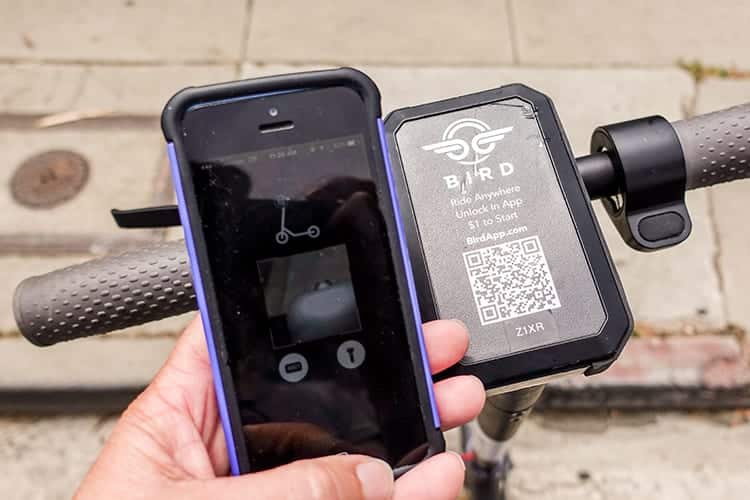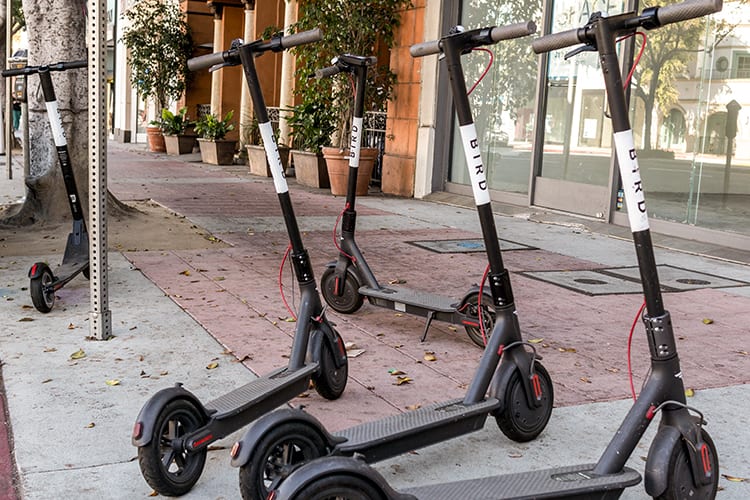
Lately, there has been an interesting new development in the transportation-share world: rental electric scooters that appear in cityscapes overnight, without much consideration for permitting or public safety. These smartphone-accessible vehicles have upended public safety in many neighborhoods, including right here in Virginia. Bird Rides Inc.’s scooters have already appeared in Arlington, without permission, and they’ve been rounded up by public workers in Richmond, where they’d appeared before sunrise and were shut-down by evening.
These companies eschew the usual permitting process in favor of surprise deployment of their product, which is designed to be commandeered on impulse. Often the minimalist-rides materialize overnight, leaving officials wondering how to reign-in trendy transportation that has already caught on without permit or policy or attention to potential for injury.

Meanwhile, in cities where scooters have been deployed, both riders and pedestrians are getting hurt. A pedestrian in Milwaukee was recently hit by a motorized Bird scooter, and the scooter driver was cited for operating an unregistered motor vehicle.
The idea of riding a scooter can be enticing, recalling childhood memories, and encouraging a more convenient mode of transportation in an already fast-paced world. Consequently, scooter riders may be more inclined to disobey traffic laws, ride on sidewalks, and eschew helmets. This is a troubling trend, since wearing a helmet is one of the best ways to prevent a possible traumatic brain injury in the event of a crash or fall. Though Bird recommends wearing a helmet, riders largely ignore this advice; as the LA Times quotes one rider saying, “I don’t feel like carrying a helmet around with me just for the chance I might want to ride one that day.”
Local governments are scrambling to gain some measure of control around the marketing and use of these scooters without looking like spoilsports. With companies like Bird using guerrilla distribution tactics and circumventing transportation regulations and licensing channels, the whole business can feel like a serious personal injury just waiting to happen. A brain injury physician in Atlanta, Ford Vox, is already treating injuries, and calling for regulation.
Our hope is that these companies will work more closely with municipalities to make scooter-renting a safer and more responsible venture. We’re enthusiastic about the potential for fewer cars in congested urban centers, and we support a revolution in transportation that cuts down on emissions. But to be a step forward, there must be a deployment strategy that doesn’t treat safety as an afterthought.